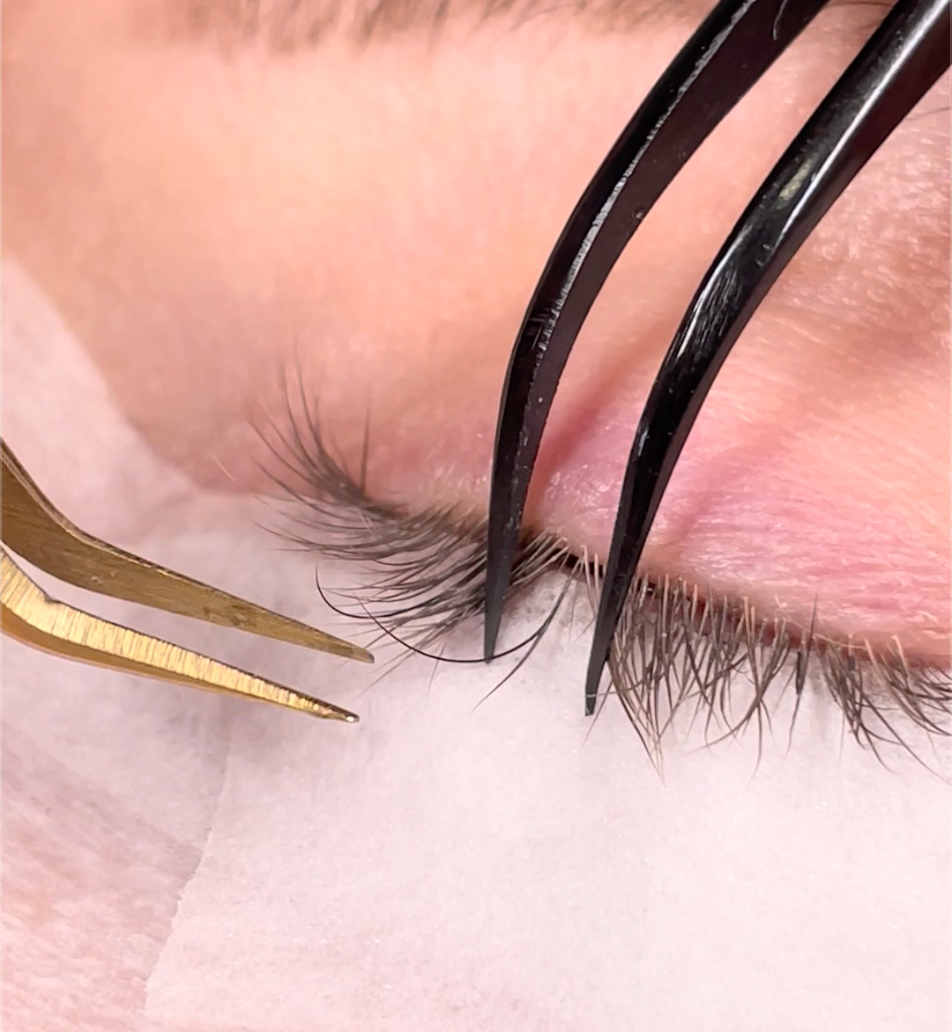FREE STANDARD SHIPPING FOR ORDERS OVER £90!🚚

0
Your Cart is Empty
FREE STANDARD SHIPPING FOR ORDERS OVER £90!🚚
FREE STANDARD SHIPPING FOR ORDERS OVER £90!🚚

Your Cart is Empty
FREE STANDARD SHIPPING FOR ORDERS OVER £90!🚚


December 13, 2021 4 min read
As a Lash Technician, patch testing is something you ought to be well versed in since learning about it on your eyelash extension course. However, if you’re feeling a little rusty or want a bit of extra guidance on why, when and how you should carry out a patch test on your lash clients, we’ve got you covered!
A patch test is a way for Lash Technicians to check if your client is allergic to any of the eyelash extension products you intend to use during their beauty treatment. By using a small amount of product in a specific area, and then waiting between 24-48 hours, after this time you'll usually be able to detect whether your client has had a reaction.

In a hair salon, a new client who has booked to have their hair coloured will typically be required to have a patch test first, which involves the hairdresser applying a small amount of hair dye onto the client’s skin. This way, the hairdresser can see whether the paraphenylenediamine in the hair dye has caused any sort of reaction on their skin after a specific period of time has passed.
When it comes to an eyelash extension patch test, Lash Technicians are actually testing the eyelash glue as opposed to the individual lash extensions themselves. It is usually the cyanoacrylate in lash glue that can cause problems, like irritating some clients’ eyes or even causing an allergic reaction.
Carrying out a patch test for eyelash glue can be a little more complicated than patch testing with hair dye. It’s not simply a case of applying some eyelash extension glue to your client’s skin, since you should NEVER apply lash glue to the skin because cyanoacrylate is a known irritant that can cause pain and discomfort!

One of the most effective patch testing methods for eyelash extensions is to apply individual eyelash extensions to up to 10 natural lashes on each of your client’s eyes. You should also use this as an opportunity to carry out patch tests for any other lash products that you typically use during the lash application process - including your pre-treatment products.
The patch test should be carried out at least 24-48 hours prior to their lash treatment. Remember, you only need to carry out a patch test on new clients, so while it might seem like a lot of effort, you shouldn’t need to repeat it on the same client again (unless you completely change your products!).

The test itself shouldn’t take any longer than 30-45 minutes - we’d recommend that you carry out a consultation before starting the patch test process. As previously mentioned, this includes preparing your client’s natural lashes as you typically would before treatment and then applying some eyelash extensions through their lash line - don't worry, this won't look strange if you make sure to use very fine eyelash extensions which are a similar length and curl to your client's natural lashes. By doing this, you can determine how your client responds to the products you intend to use.

Something crucial to remember is that patch tests cannot be considered 100% accurate - unfortunately, they may not always provide a conclusive answer.
However, if your client doesn't show any of the usual signs of being sensitive to the products you have used, you are free to go ahead with the eyelash extensions application. In cases where your client has had a reaction to the products, you should be available to remove the lash extensions safely and effectively, making sure to remove all traces of the lash glue as this is the most likely culprit!
Most importantly, if your client has had an extreme reaction to the products, you must encourage them to seek medical advice.
New clients might be curious as to how often they need to have patch tests. Let’s be honest, they can be considered quite an inconvenience!
Thankfully, you can reassure your clients that you should only have to carry out an eyelash extension patch test before they have their first eyelash extension appointment with you! Unfortunately, there’s no guarantee that they won’t develop a reaction to the products further down the line, but as long as you carry out a patch test before their first treatment, you’re taking the necessary precautions!
Of course, you should also check your insurer’s guidelines to ensure you are covered. Some insurers may not even require you to carry out a lash glue patch test in the first place, however many will.

It's always a good idea to check with your insurance provider whether they require you to patch test or not, but generally speaking, gone are the days where an insurance provider will require you to carry out patch tests, as they now refer you to your supplier.
When it comes down to it, patch testing is essentially down to the discretion of each individual business owner - if you don't enforce patch tests, the most important thing that you can do is to make your clients aware of any and all risks associated with eyelash extensions, and offer them a test so that they can make an informed decision. If you do this, it's well worth having them note this on their consultation card, just in case!
Sign up to get the latest on sales, new releases and more …
